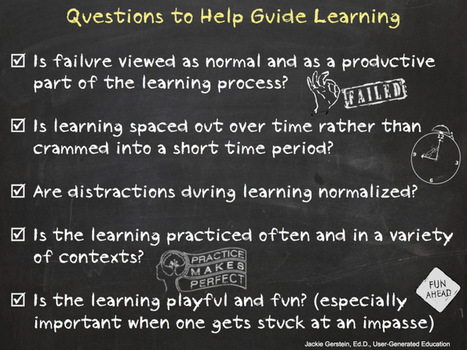It is a myth that we operate under a set of oppressive bureaucratic constraints. In reality, teachers have a great deal of autonomy in the work they chose to do in their classrooms. In most cases it is our culture that provides the constraints. For individual teachers, trying out new practices and pedagogy is risky business and both our culture, and our reliance on hierarchy, provide the ideal barriers for change not to occur. As Pogo pointed out long ago, “we have met the enemy and it is us.” http://www.cea-ace.ca/blog/brian-harrison/2013/09/5/stop-asking-permission-change
Educational psychology has focused on the concepts of learned helplessness and more currently growth-fixed mindsets as a way to explain how and why students give up in the classroom setting. These ideas can also be applied to educators in this day of forced standardization, testing, scripted curriculum, and school initiatives.
Learn more:
http://www.scoop.it/t/21st-century-learning-and-teaching/?tag=Growth+Mindset
Via Gust MEES, Jim Lerman



 Your new post is loading...
Your new post is loading...












It is a myth that we operate under a set of oppressive bureaucratic constraints. In reality, teachers have a great deal of autonomy in the work they chose to do in their classrooms. In most cases it is our culture that provides the constraints. For individual teachers, trying out new practices and pedagogy is risky business and both our culture, and our reliance on hierarchy, provide the ideal barriers for change not to occur. As Pogo pointed out long ago, “we have met the enemy and it is us.” http://www.cea-ace.ca/blog/brian-harrison/2013/09/5/stop-asking-permission-change
Learn more:
http://www.scoop.it/t/21st-century-learning-and-teaching/?tag=Growth+Mindset
https://gustmees.wordpress.com/2015/03/15/professional-development-why-educators-and-teachers-cant-catch-up-that-quickly-and-how-to-change-it/
https://gustmees.wordpress.com/2015/03/28/learning-to-learn-for-my-professional-development-i-did-it-my-way/
A serious problem that must be solve..
Teacher Agency: Educators Moving from a Fixed to a Growth Mindset | @scoopit via @knolinfos http://sco.lt/...